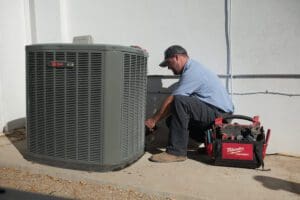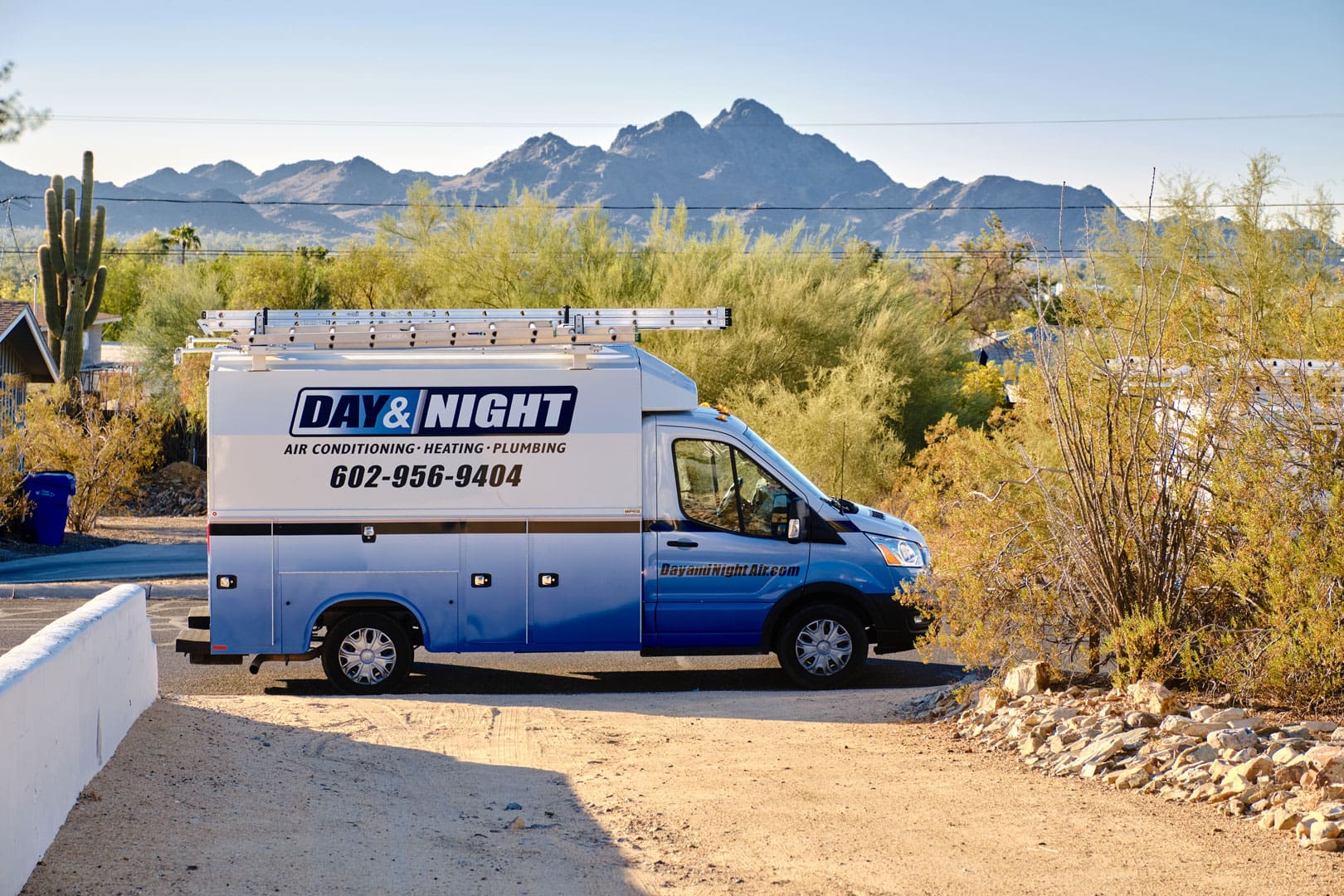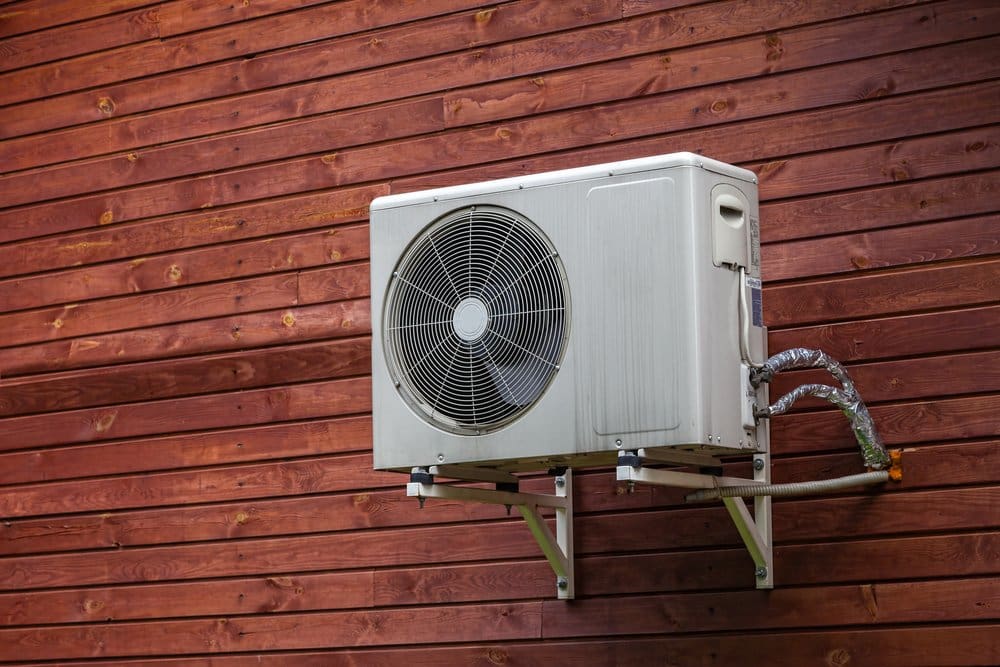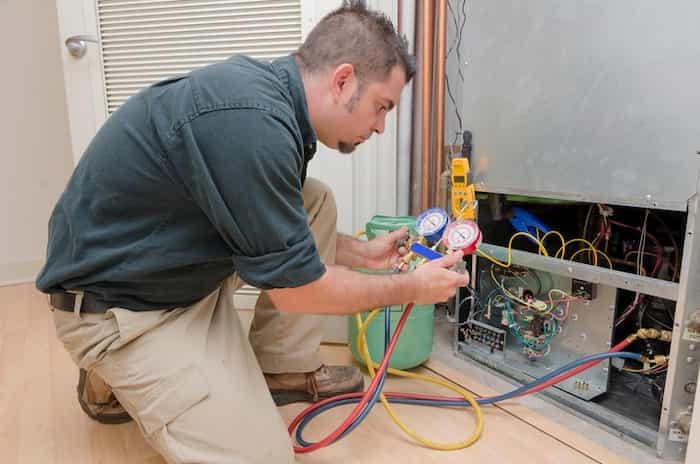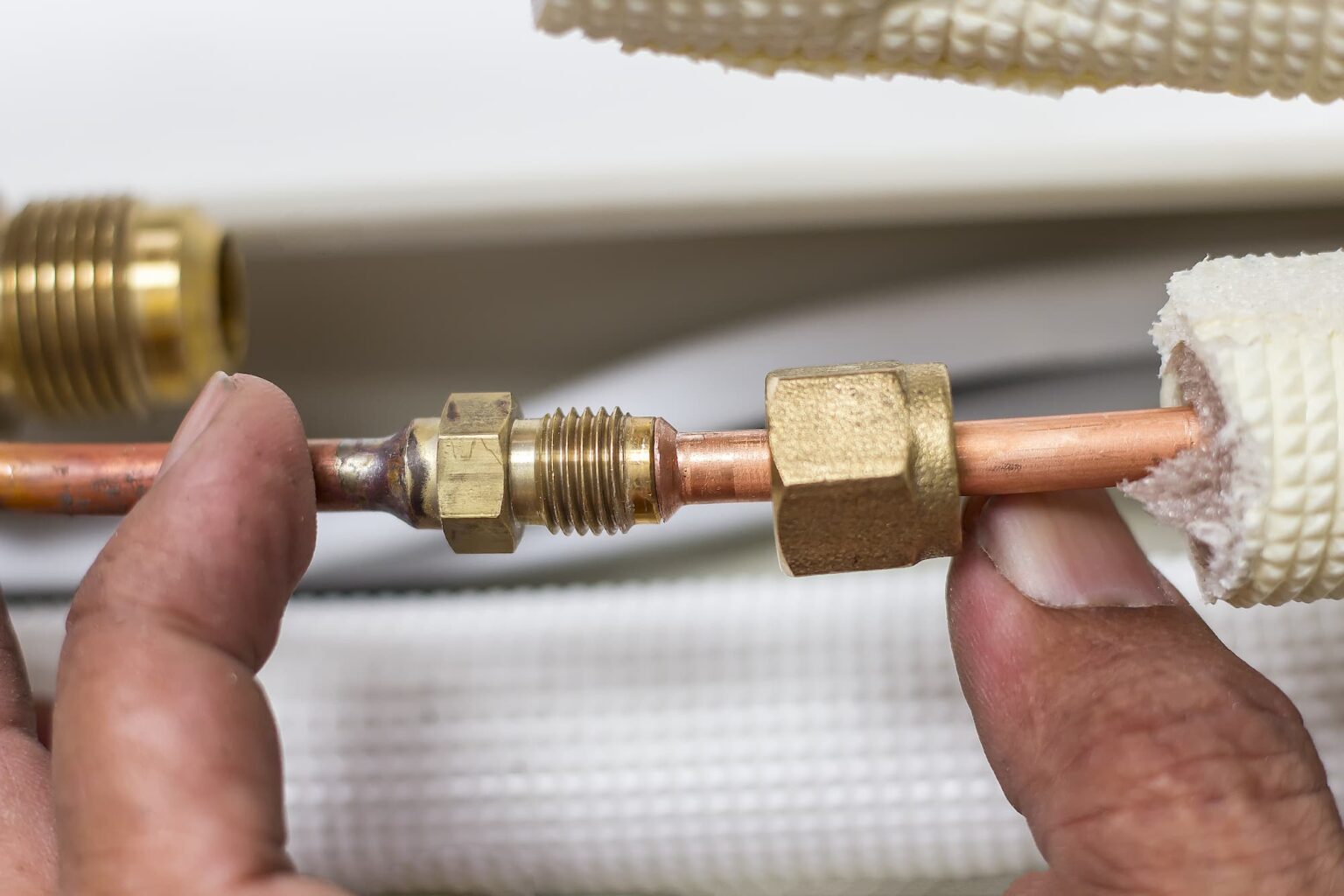If you’ve noticed the temperature rising in your Phoenix home, it may be time to call for an AC repair. Most of the time, your air conditioner will give you plenty of warning before it stops running completely. Once it’s stopped running, there are a few things to check before you call in an expert. We’ll walk you through the basics of what you should be looking for, starting with the simplest checks to do on your own.
Start at the Thermostat
The thermostat is the easiest place to start your troubleshooting because it is inside the home, and it controls your AC unit outside. Oftentimes the thermostat gets bumped off of cool setting or isn’t set to a low enough temperature to trigger the AC turning on. Turn it to cool if necessary. Then you can try to force your AC to turn on by lowering the temperature setting to at least five degrees below the current temperature of the room. It may take a minute or two for you to hear the system coming to life.
Check the Circuit Breakers
It is possible that your AC unit was cut off during a power surge that flipped the breaker. Your AC system will be on its own breaker circuit due to the high amount of electrical draw required by the system. Occasionally a breaker will flip during the hot summer months due to the system running too hard for too long. Usually, it’s okay to flip the breaker back on, however, if it keeps flipping back off, you may have a larger problem at hand that requires the help of a Phoenix AC repair expert.
Check the Outside Fuse
If you check the breaker and there’s still no sign of trouble, the next step is to check the external fuse that is located on the AC unit itself. Each AC unit has a fuse located in a slightly different place, but you can usually find it beneath a slide off panel that has a couple simple screws holding it in place. You should be able to see right away if the fuse has blown. Remember, this may have happened due to excessive draw in the system. You can replace the fuse easily if you can locate a replacement, but some systems require specialty fuses that you will have to order from a local AC service company.
Check for Signs of Damage Outside
There are many external forces that can cause an air conditioner to shut down. If your exterior unit is surrounded by leaves, branches, or other debris, it is possible that your AC has shut down because something fell into the fans. In addition, these units tend to attract rodents and other critters that chew on wires. A quick external inspection should be enough to verify that all of the lines and wires are in good condition, and there is nothing stuck in your AC fan.
Check the Drain Lines and Drain Pan
If your drain lines get plugged up, water will start accumulating in the drain pan in your attic. To prevent this pan from overflowing and causing ceiling damage in your home, there is a switch located inside the pan that cuts power to the AC unit before it overflows. There should be little to no water sitting in the pan. If there is, you may have a clogged drain that is backing things up. These drain lines can be blown out with the help of a certified AC repair technician in Phoenix.
Look for Ice
While you are up in the attic inspecting the drain lines and drain pan, take a moment to look at the condenser for signs of ice. If your refrigerant level is running low, your AC unit is working overtime to keep your home cool. As it runs longer and longer, it begins to form a layer of ice on the outside, sometimes several inches thick. When this happens, your unit will shut down until the ice thaws completely, which can take several hours. If you notice ice, you will need to call a technician to come recharge your unit and inspect for leaks. Otherwise, it will keep freezing and thawing in longer cycles and may cause irreparable damage over time.
Once you’ve run out of places to check, call Day & Night Air to schedule a service appointment and get your AC unit back up and running in no time. We can walk you through the steps of what to check when your AC has cut off to help you determine whether the issue is a simple fix or will require a major repair.

